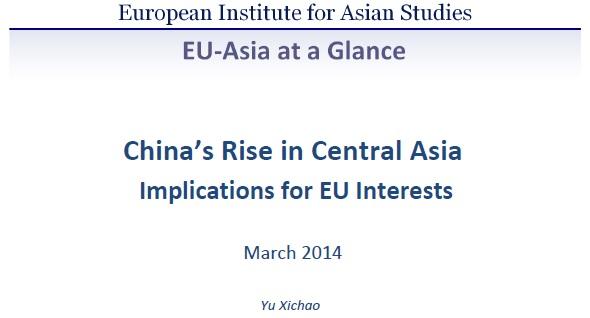Relations between China and Central Asia have been developing rapidly in recent years. The region has risen from a marginal position to becoming one of the top priorities in China’s foreign policy strategy, and is a region of great geostrategic importance presenting both challenges and opportunities to China’s security, economic and political interests. China’s policy focus towards Central Asia is guided by the strategy of ‘March West’. China has a strong interest in a peaceful, stable and prosperous Central Asia. This contributes to ensuring energy supplies and protecting the stability in the autonomous region of Xinjiang, in the country’s Northwest. The increasing Chinese influence has sped up competition among major powers to defend their interests in Central Asia, including Russia, the United States (US), the European Union (EU), Turkey and India. The EU has long been Central Asia’s biggest trading partner for decades, but it was surged past by China in 2010. In a context of fierce ‘power struggles’ in the region, the EU has to define the role it will play in order to safeguard its own interests.

